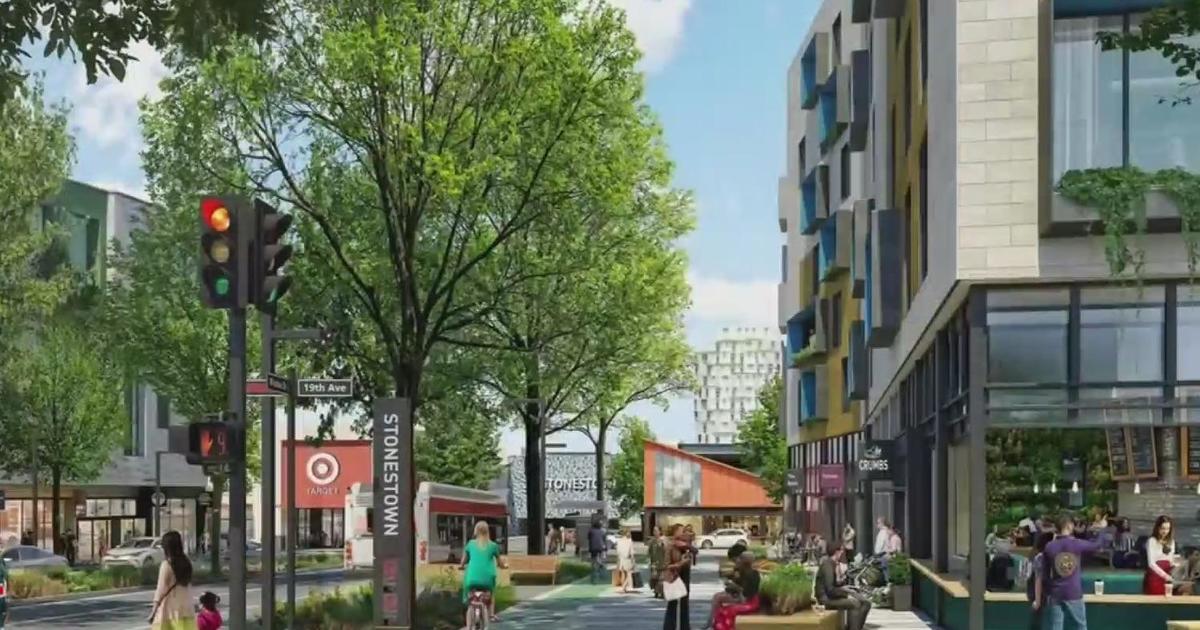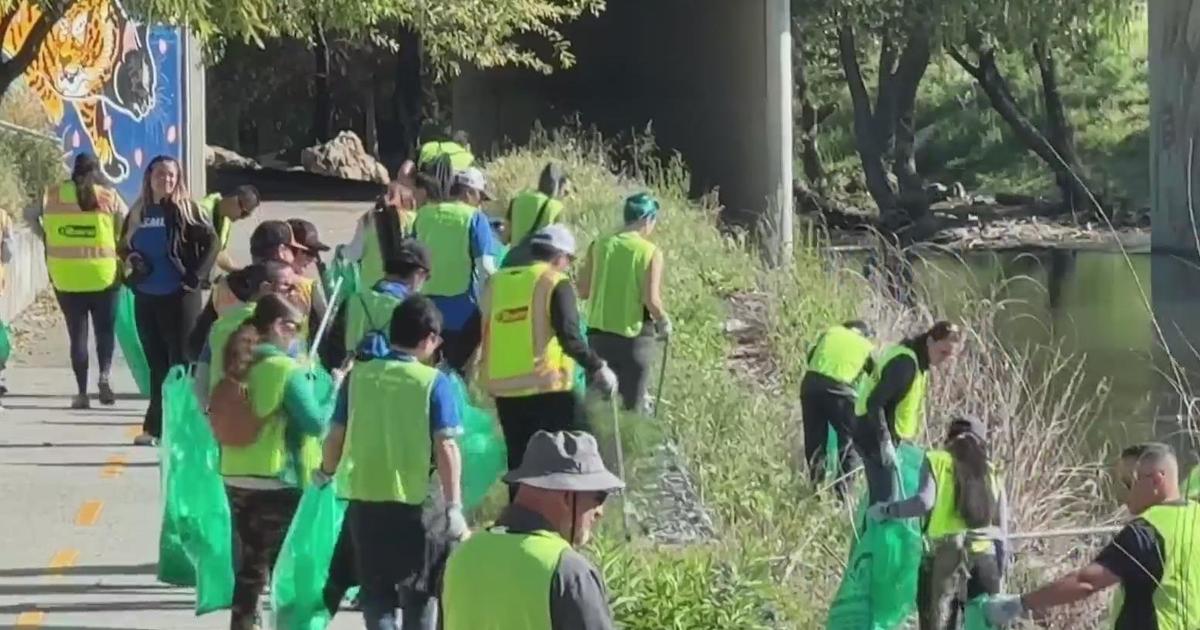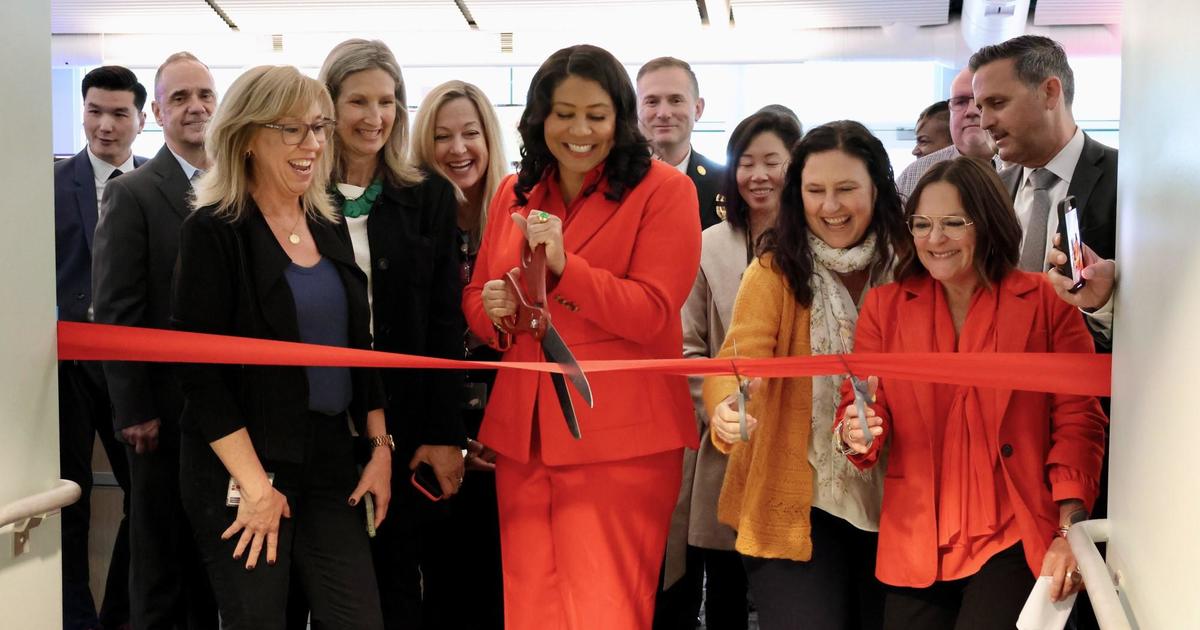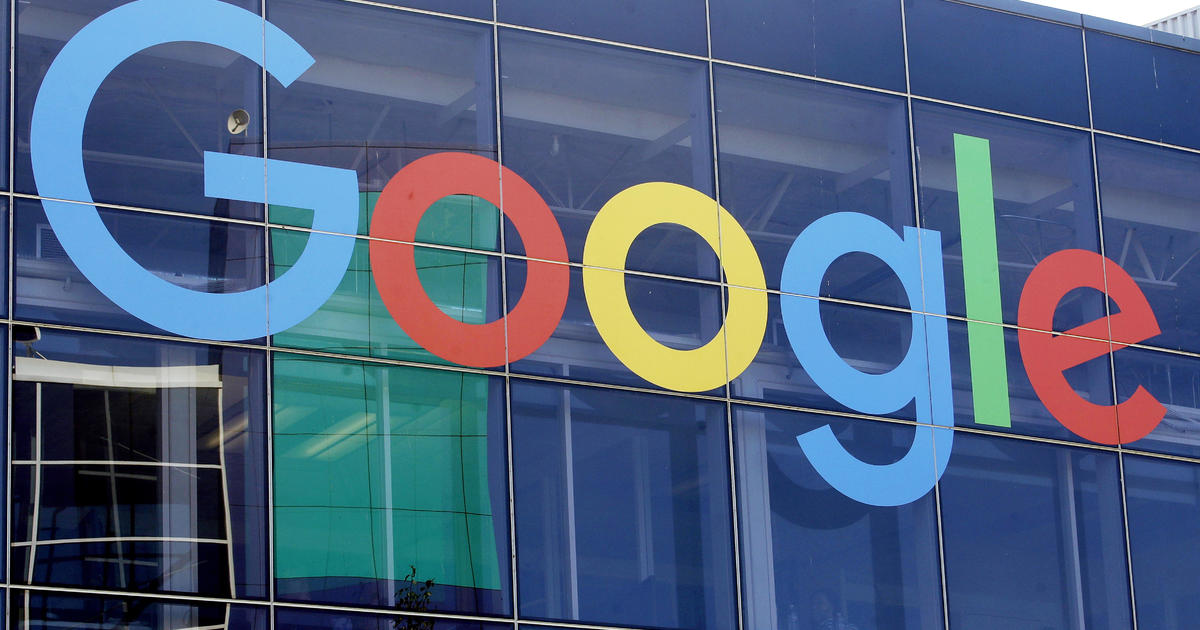San Jose Unions, Housing Activists Battle Business Leaders Over High-Rise Fee Reduction
SAN JOSE (KPIX) -- Labor unions in San Jose have joined together with affordable housing activists to battle once again with the city's business leaders, this time over the proposed renewal of the Downtown High-Rise Fee Reduction Program.
The program exempts qualifying construction projects from paying the Affordable Housing Impact Fee and transportation impact fees, which can run into the millions of dollars. The funds are then earmarked for affordable housing projects, or infrastructure improvements. The fee reduction program has been in place since 2007.
Silicon Valley Rising, a coalition of labor and faith leaders and community organizers, singled out nine projects in the downtown core that are eligible for the fee reduction program. Two of the projects are already underway, at 80 E. San Carlos Street and 193 E. Santa Clara Street.
However, seven of the projects have not yet begun. Silicon Valley Rising criticized the mayor and his council supporters for approving the projects and waiving up to $67 million in potential fees.
"What does the city get in return? No affordable housing, no money for transportation and traffic infrastructure, and no good quality jobs," said Ben Fields, Executive Director of the South Bay Labor Council.
At a press conference in the plaza at City Hall Thursday, Silicon Valley Rising claimed the fee reductions went to developers who donated to Mayor Sam Liccardo's election campaign.
"Mayor Sam Liccardo and other city leaders are proposing a $67 million dollar giveaway to developers," said Fields, "It's time to end the corrupt pay-to-play culture in the city of San Jose, and get a better deal for San Jose taxpayers."
At the Silicon Valley Organization, formerly known as the Chamber of Commerce, a similar coalition of business, real estate, and construction leaders gathered in support of the fee reduction program.
"Silicon Valley has some of the highest construction costs in the country. In fact, it is the most expensive place to build in the country," said CEO of the Silicon Valley Organization Matt Mahood.
Mahood said the affordable housing fees adds significant cost to projects where land values and costs for materials and labor are some of the highest in the nation.
"Developers are looking for a five percent slim profit margin. And without that profit margin, capital markets don't invest in projects. In fact, they will take their projects somewhere else. We have seen in other cities: Seattle, Denver, Portland, Vancouver, San Diego, and most recently in Nashville, where that capital is flowing because there's a market return that the capital markets want to see. They're getting projects out of the ground. They don't have the housing shortage and crisis that we have," said Mahood.
Michael Lane, deputy director of SV@Home, an affordable housing advocacy group, says the "numbers don't pencil out," and points out flaws in the argument to reinstate the fees.
"The problem is, if you keep the fees on the projects, they don't go forward at all, so no one pays those fees. And so that's why I say, 15 percent of zero is zero, because you just made the project unfeasible," said Lane.
Scott Knies, executive director of the San Jose Downtown Association, took issue with Silicon Valley Rising's assertions of mayoral corruption. Knies says the labor unions' opposition to the fee reduction program is tied to their effort to place a measure on the November ballot that would that would block city council and mayoral candidates from accepting contributions from developers, landlords, and certain lobbyists.
"They (unions) conveniently exempted themselves from that. So labor and unions would still be able to donate to the elections, but not special interests. I think they're a little worried about that because San Jose voters are so smart and they're going to see through that," said Knies.
San Jose Mayor Sam Liccardo released this extended written statement:
"These fee reduction critics' own handpicked expert told us exactly what the market is telling us: exceedingly high construction costs will prevent any residential builder from getting the financing to build a high-rise in Downtown for several years—despite a housing crisis that screams for more housing.
Since the first high-rise fee reduction was proposed by then-Downtown Councilmember Cindy Chavez some 15 years ago, the City has recognized that we won't get high-rise apartments built if we don't reduce the city's fees on this uniquely difficult construction type. Ever since, we have reduced fees—with no direct city subsidy—to enable projects to get built Downtown, but the reduction will soon expire. The downtowns of other cities experiencing rising rents—such as Seattle, Dallas, Atlanta, and Austin—are seeing dozens of high-rise cranes in the air, but if Council doesn't extend the existing fee reductions, San Jose will continue to suffer through its housing crisis with a puzzling dearth of high-rise construction.
We face a straightforward choice: either reduce fees and get housing built, or we sit on our hands and hope for some miracle to solve this housing crisis for us."
The San Jose City Council votes on the issue Tuesday, September 24, 2019.



